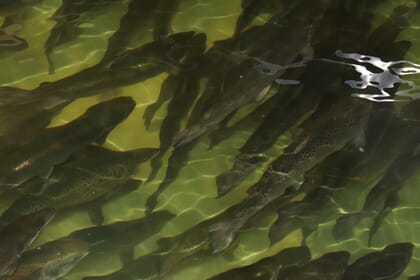According to Rock Energy, there are currently between 100 and 200 companies planning annual production of up to 2.3 million tonnes of salmon on land, of which about half is planned for Norway.
Should the projects succeed, it would almost double the current total marine production of salmon (about 2.7 million tonnes) and require large amounts of energy.
The solution being evaluated by Rock Energy means that energy can be produced locally and will reduce
the burden on both existing and new establishments of infrastructure for energy deliveries.

Rock Energy AS specialises in the utilisation of deep geothermal energy and says that it “possesses knowledge, patents, as well as geotechnology that make it possible to utilise geothermal energy in an efficient, industrial and sustainable way in the aquaculture industry, regardless of location and access to power grids and infrastructure along Norwegian fjords”.
"Our technology will be utilised for a new, holistic and unique energy concept. The solution is based on offering the aquaculture industry energy, in the form of heat and electric power production," said Lars Due, COO of Rock Energy, in a press release.
Rock Energy is evaluating the possibility of installing a number of facilities that are owned and operated through various single purpose vehicles (SPV) companies, through which players in the aquaculture industry will also have the opportunity to become co-owners. Each individual SPV will sell capacity and energy supply to the aquaculture industry.


